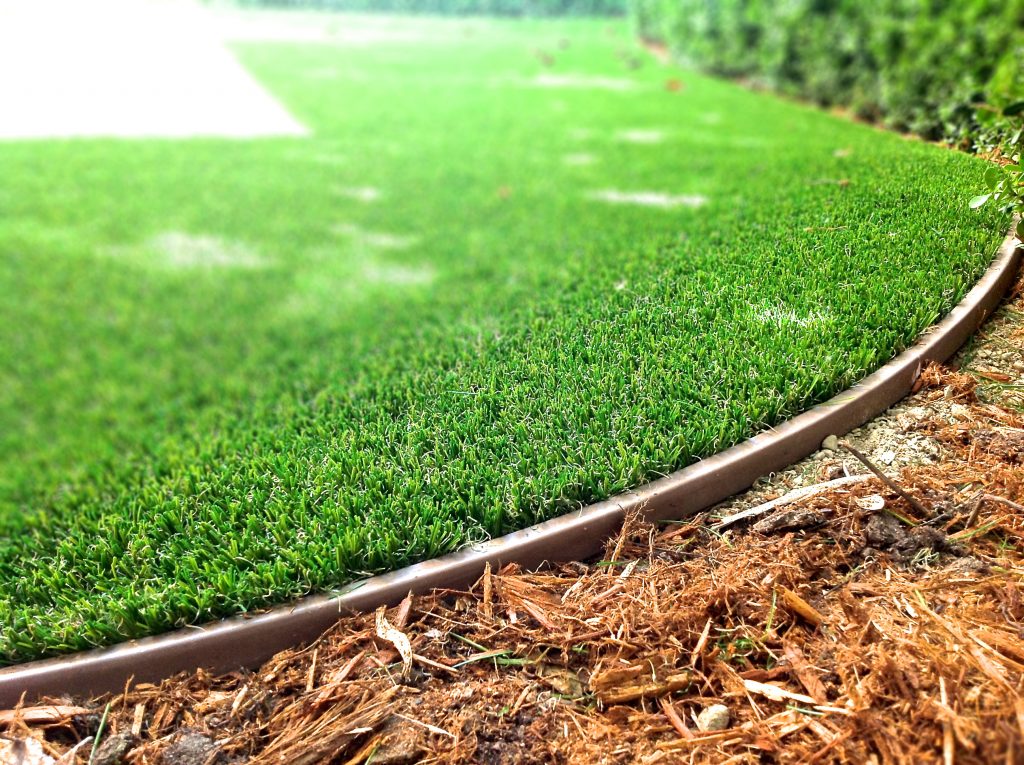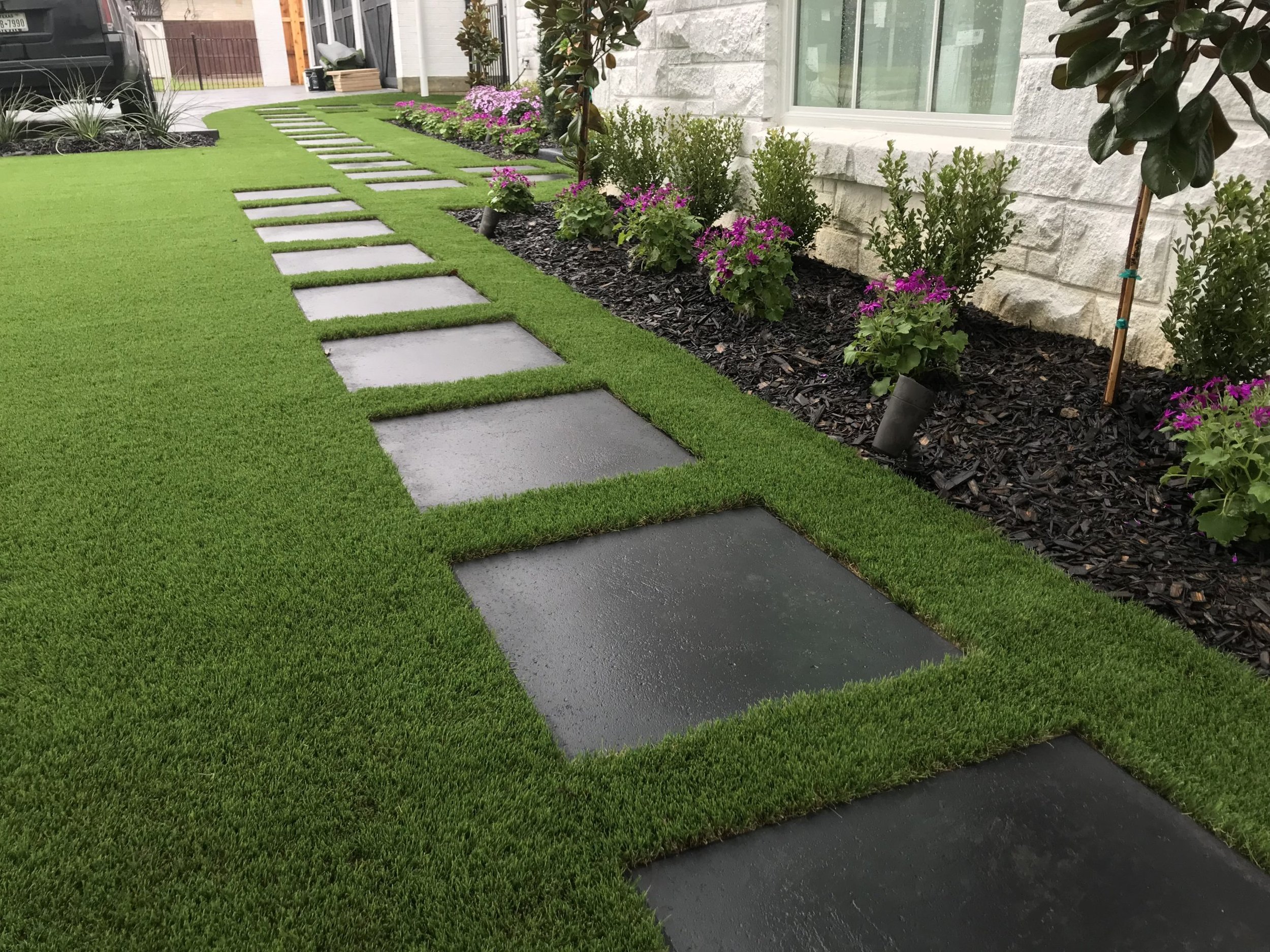See Why Homeowners Prefer Synthetic Grass for Sustainable Landscaping Practices
As house owners significantly focus on sustainability in landscape design, synthetic grass has become a compelling alternative to traditional grass. Its ability to conserve water, reduce upkeep efforts, and reduce environmental impact placements it as a practical selection for those looking for eco-friendly remedies. Additionally, the aesthetic appeal and versatility of fabricated lawn provide to diverse design choices. However, the implications of this change prolong beyond plain comfort and appearances, triggering a closer evaluation of how these selections influence more comprehensive ecological outcomes. What stays to be explored is the full scope of benefits that artificial lawn can supply to home owners and the atmosphere alike.
Water Preservation Benefits
One of one of the most significant benefits of fabricated turf is its function in water preservation. Traditional turf yards call for considerable quantities of water to keep their lush appearance, commonly bring about overuse of local water resources, particularly in arid regions. In contrast, fabricated lawn removes this demand entirely, as it does not require watering. This not only saves water yet additionally minimizes the stress on community water systems, specifically during drought conditions.
In addition, the installment of synthetic lawn can contribute to a more sustainable landscape. Homeowners can dramatically lower their water expenses, permitting reallocation of sources to various other environmental initiatives or home usages. In addition, synthetic grass is created to stand up to different climatic conditions without the demand for extra watering, making it an excellent selection for regions facing water deficiency.
The ecological benefits extend past instant water cost savings. By lowering water intake, synthetic grass aids to alleviate the effects of climate change, protecting crucial environments that are threatened by too much water extraction. As sustainable landscape design practices get traction, synthetic grass emerges as a responsible selection for property owners looking for to develop eco-friendly exterior spaces.
Lowered Maintenance Initiatives
Synthetic lawn dramatically decreases upkeep efforts compared to typical lawn yards. With synthetic yard, property owners can remove the time-consuming tasks related to natural landscape design, such as mowing, feeding, and weeding. This not only conserves beneficial time but also lowers physical labor, making lawn treatment obtainable for individuals of any ages.
Among the most significant benefits is the lack of routine mowing. Conventional lawns require constant cutting to keep a cosmetically pleasing elevation, whereas synthetic turf remains continually lavish without the demand for cutting. Furthermore, homeowners no more need to apply fertilizers or chemicals, which are commonly required to keep all-natural yard healthy and balanced. This change not just lightens the work yet also advertises a neater, extra uniform appearance year-round.
In addition, artificial lawn is durable and resilient, requiring minimal maintenance beyond periodic cleaning and washing to get rid of particles. This ease of maintenance enables home owners to enjoy their outdoor spaces without the consistent concern of upkeep, offering even more time for leisure and family members activities. Inevitably, the decreased upkeep initiatives connected with synthetic turf make it an appealing alternative for those looking for a low-maintenance, visually appealing landscape.

Environmental Impact Reduction
There is an expanding acknowledgment of the ecological advantages related to synthetic grass, specifically in regards Your Domain Name to water conservation and minimized chemical usage. Standard lawns require substantial quantities of water, specifically in drought-prone regions, resulting in boosted pressure on neighborhood water sources. In comparison, fabricated lawn eliminates the requirement for irrigation, substantially decreasing water consumption and promoting sustainability.
Additionally, standard yard upkeep often entails the application of plant foods, herbicides, and pesticides, which can add to dirt and water pollution. Synthetic grass alleviates this environmental risk by needing marginal maintenance and virtually removing the demand for unsafe chemicals. This not only boosts soil wellness but also safeguards regional ecological communities from harmful runoff.
In addition, the production of all-natural turf yards normally involves using fossil fuels for trimming and landscaping tools, further adding to greenhouse gas emissions. By selecting fabricated turf, homeowners can significantly lower their carbon footprint related to grass treatment tasks.
Aesthetic Allure and Adaptability
Along with its environmental advantages, synthetic lawn provides significant aesthetic charm and flexibility for landscaping. Home owners can achieve a lush, green look year-round, getting rid of the seasonal fluctuations frequently related to natural turf. This constant visual not just boosts the visual allure of a residential property yet likewise adds to a polished and well-kept look.
Additionally, synthetic grass is offered in a range of shades, textures, and styles, enabling customization to suit private preferences and design styles - Phoenix turf companies. Whether utilized in household yards, business areas, or leisure locations, it can seamlessly incorporate right into varied landscape design styles, from modern minimalist to rich tropical settings
The adaptability of fabricated turf prolongs beyond mere look; it can be mounted in different areas, consisting of roofs, patio areas, and even indoor rooms, developing opportunities for one-of-a-kind landscape browse around these guys design options. Additionally, it is appropriate for a series of activities, from youngsters's play areas to pet-friendly environments, offering functionality without jeopardizing style.
Eventually, the visual charm and convenience of fabricated turf make it an appealing choice for house owners looking for sustainable landscape design remedies that do not give up charm for environmental obligation.

Long-Term Cost Savings
One of the most engaging advantages of synthetic grass is its capacity for long-term cost financial savings. Unlike all-natural turf, which requires regular maintenance-- including mowing, watering, fertilizing, and pest control-- artificial lawn significantly minimizes these ongoing costs. House owners can save a considerable quantity on water bills, specifically in areas where water deficiency is a pushing concern. The removal of grass care solutions even more adds to financial savings, as there is no requirement for customized equipment or labor.
In addition, synthetic grass has a life expectancy of 15 to 25 years, depending on its top quality and use. This toughness decreases replacement costs, making it a more economical choice in the lengthy run. Additionally, the preliminary investment in synthetic grass can often be recouped through the savings accumulated gradually.
While the ahead of time cost might appear greater contrasted to sod installment, the advancing cost savings from minimized upkeep and water usage often outweigh these initial expenditures. Ultimately, the fostering of artificial lawn not just promotes a sustainable landscaping solution but additionally offers property owners a financially savvy option that aligns with long-term budgeting objectives.
Verdict
Synthetic grass becomes an engaging alternative for lasting landscaping, using significant benefits in water conservation, decreased maintenance efforts, and reduced ecological effect. Its aesthetic appeal and convenience improve the visual landscape while aligning with modern-day sustainability objectives. Long-lasting price financial savings add to its attractiveness for home owners. As areas progressively focus on eco-friendly practices, the fostering of synthetic grass stands for a progressive action toward accomplishing durable and lasting landscapes.
Furthermore, artificial lawn is developed to endure various weather conditions without the demand for extra watering, making it a suitable option for areas dealing with water shortage. (Artificial turf companies phoenix)

Man-made grass emerges as an engaging option for sustainable landscaping, supplying considerable advantages in water conservation, lowered upkeep initiatives, and reduced environmental impact.